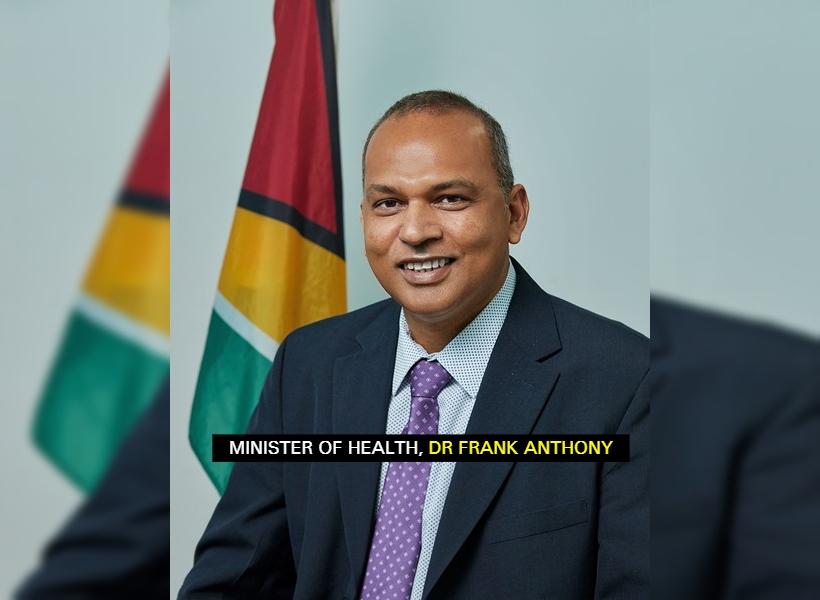Minister of Health, Dr. Frank Anthony disclosed this information to the Department of Public Information (DPI).

During an interview conducted following a recent visit to Linden, Minister Anthony reminded that traditionally, physical illness is given higher priority than mental illness—an aspect of the country’s culture that has only recently started to change.
However, recognising the importance of mental health and wellbeing, government has begun the training of primary healthcare workers to detect signs and symptoms of mental illness using the World Health Organisation (WHO) Mental Health Gap Action Programme (mhGAP) manuals.
Minister Anthony stated that the ministry and the Guyana Police Force (GPF) have engaged in discussions regarding the possibility of police officers being trained using these guidelines as well.
“I spoke to the police about two weeks ago, talking to them about the possibility of us collaborating. They are interested in such a collaboration, so we can train police officers to help them to respond to patients [with mental health issues],” he expressed.
Teachers are a second, additional group being targeted for this training, as they come into contact with numerous young persons who may be struggling with mental health issues.
“Right now, we have a collaboration with the Ministry of Education, where we are training teachers to do detection of certain illnesses like eye problems, hearing problems and so forth, so we will be screening children across the country… and we can include mental health awareness training in that training as well,” Dr Anthony said.
Last year, government passed two key pieces of legislation to promote awareness and improve conditions for persons with mental health issues; the Mental Health Protection and Promotion Act of 2022, and the amended Suicide Prevention Act of 2022.
The Mental Health Protection and Promotion Act repeals the Mental Health Ordinances of 1930, and aims to make mental health services accessible to all persons, preserve the rights of those with mental illnesses, and implement policies to reduce stigma.
Meanwhile, the Suicide Prevention Act provides for the establishment of a Suicide Prevention Commission towards the aim of reducing suicide-related stigma and reducing suicide.
More than 150 primary healthcare workers have also been trained to detect signs and symptoms of mental illness and administer care, as well as report cases to mental health professionals. (Department of Public Information)













